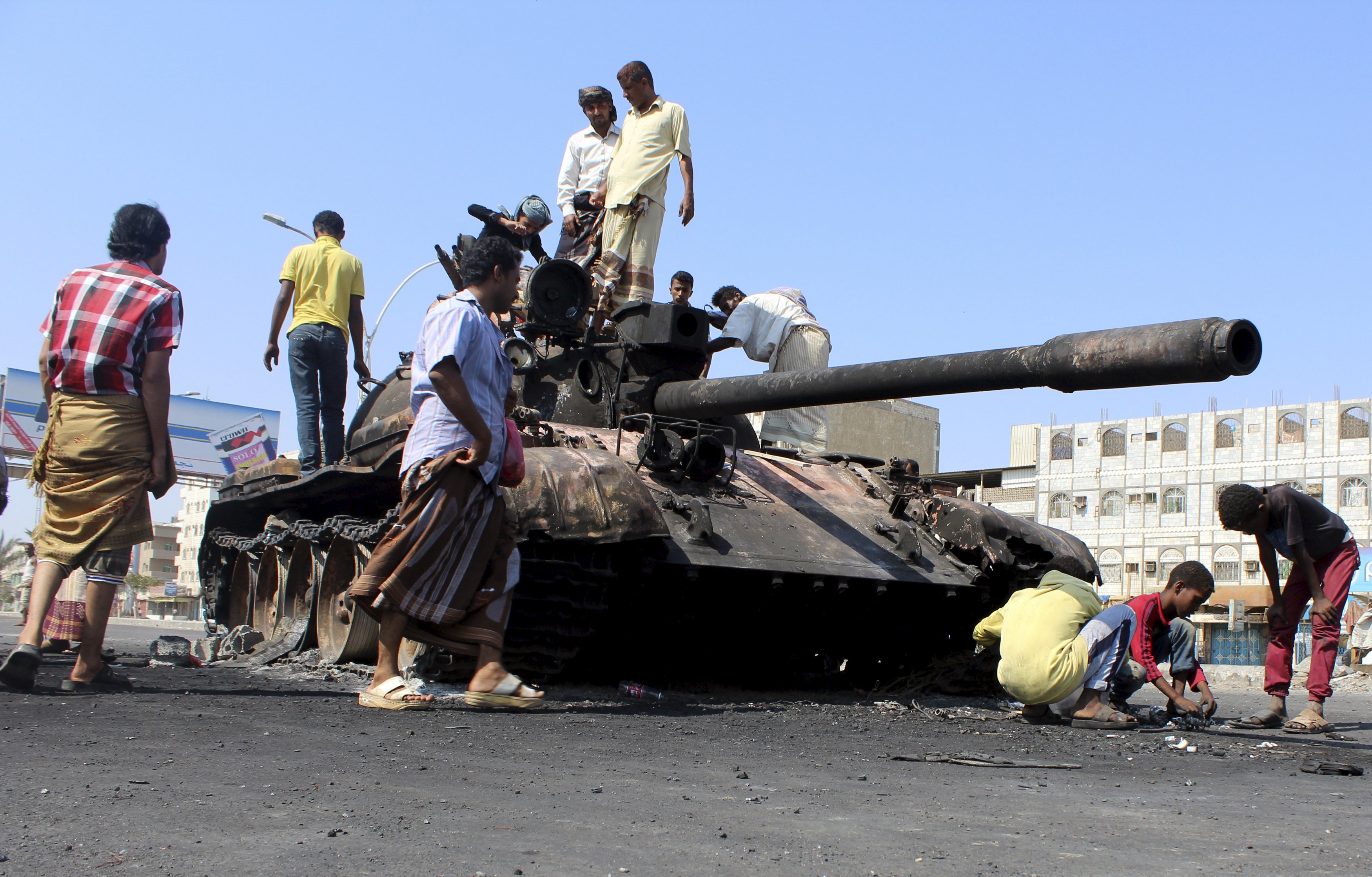Yemeni fighters loyal to Saudi-backed President Abed Rabbo Mansour Hadi clashed with Iranian-allied Houthi fighters on Sunday in Aden, the absent leader's last major foothold in the country.
Hadi loyalists in the southern port city reported a gunbattle in the central Crater district in which three people were killed, and said they recaptured the airport, which has changed hands several times in recent days.
The Health Ministry, loyal to the Houthi fighters who control the capital, said Saudi-led airstrikes had killed 35 people and wounded 88 overnight Saturday. The figures could not be independently confirmed.



















With your current subscription plan you can comment on stories. However, before writing your first comment, please create a display name in the Profile section of your subscriber account page.